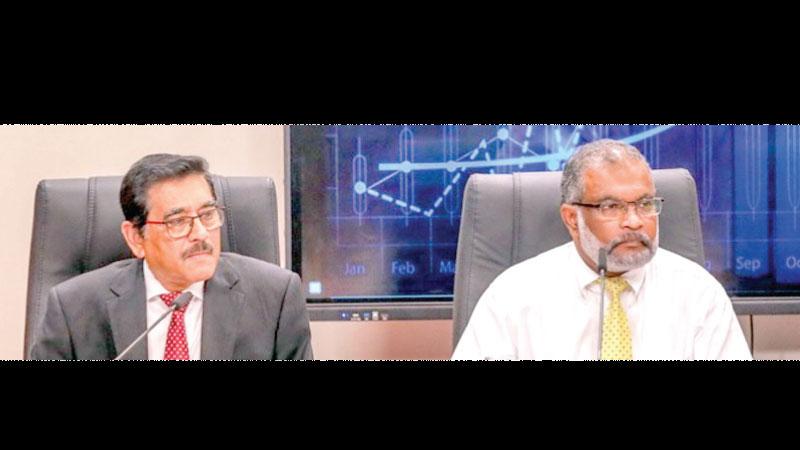
A strong assurance was given by the Governor Central Bank Dr. Nandalal Weerasinghe and Secretary, Finance Ministry, Mahinda Siriwardena that the current local Domestic Debt Restructuring (DDR) process will not result in delays in ongoing payments due by government to various bodies and also for 57 million bank deposits.
Asked to comment by Sunday Observer Business that the DDR will result in the delay in payments due by the government to contractors and other institutions they answered in the negative. “We have already started paying government dues for the construction sector and other bodies.”
The DDR has no relevance to this segment, Siriwardena said on the sidelines of a press briefing held at the Presidential Media Centre on DDR.
Dr. Weerasinghe said that protecting the banking system and ensuring the safety of depositors’ funds are crucial responsibilities.
“The banking system plays a vital role in the economy, as evidenced by the 57 million bank accounts holding deposits from a population of around 20 million.
“Any harm to these funds would have a severe impact on the banking system. As the Central Bank, our primary objective is to safeguard the banking system and the currency.
Recently, there were rumors about bank collapses and concerns were raised regarding the safety of deposits.”
Withdrawing deposits from banks would lead to an economic collapse and this segment would not be impacted due to the DDR.
Furthermore, Dr. Nandalal Weerasinghe assured the public that the existing Employee Provident Fund (EPF) would remain untouched. Additionally, he guaranteed a minimum interest rate of 9% for the EPF.
In order to achieve a sustainable level of the government’s domestic debt, we must work towards stabilizing the current criteria within a 10-year timeframe, as agreed upon with the International Monetary Fund (IMF). For instance, by the end of 2022, the public debt as a percentage of the Gross Domestic Product (GDP) stood at 128%.
the Employee Provident Fund (EPF) and the Employees’ Trust Fund (ETF), they are subject to a 14% tax rate, which is lower than the tax rate imposed on banks.
The proposal suggests retrieving all existing treasury bonds from these funds and issuing new bonds in return.
“These bonds will earn 12% interest until 2025 and 9% interest thereafter. Importantly,
the amount in the EPF will not decrease, as the government guarantees a future benefit of 9% interest. The government assures that if there is any deficit, the treasury will cover it.
Those who choose not to participate in the Treasury bond exchange have the option of paying a 30% tax instead of the standard 14% tax.”
